Premi e bandi
Work in progress
Work in progress
Every year, upon request of a proposing group, AISV organizes a summer school or a training school/course addressing several aspects dealing with the voice.
AISV summer school and training coordinators are prof. Claudia CROCCO and prof. Giovanni ABETE.
For further details on the schools organized so far by AISV, please visit the sections under this menu.
I docenti di questa edizione della scuola estiva sono (in ordine alfabetico):
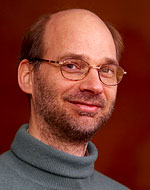 |
Paul Boersma
Phonetic Sciences, University of Amsterdam Spuistraat 210, room 303 - 1012VT Amsterdam, The Netherlands http://www.fon.hum.uva.nl/paul/ |
| Paul Boersma is Professor of Phonetic Sciences at the University of Amsterdam. His research focuses on the development of a computational multi-level model of phonological and phonetic production and comprehension, including their acquisition and evolution across the generations. | |
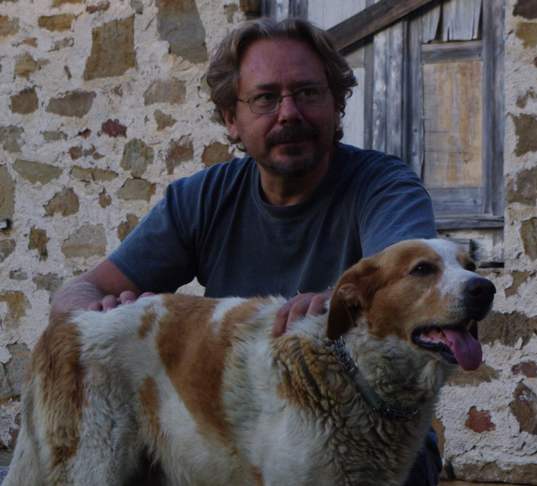 |
Francesco Cutugno LUSI-Lab at Department of Physics - Language Understanding and Speech Inter/Action/Faces University "Federico II", Naples, Italy http://people.na.infn.it/~cutugno |
| Francesco Cutugno is assistant professor at the University 'Federico II' of Naples. He gives classes in Natural Language Processing and in XML native databases theory. His main research interests concern with Speech technologies and Information Retrieval in Spoken Language Corpora. In the last decade he directed (in cooperation with other researchers) the operations of collection and management of two among the largest speech corpora ever collected for Italian, CLIPS (1) and Speecon (2). He published several papers on Speech Corpora data modelling and querying. Recently, in collaboration with other authors, he developed SpLaSH (3) a software for searching and querying in speech databases containing both time aligned and text aligned linguistic annotations. (1) http://www.clips.unina.it (2) http://www.speechdat.org/speecon/index.html (3) http://s2snaples.fisica.unina.it/splash |
|
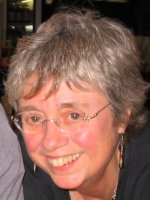 |
Sarah Hawkins Faculty of Music, University of Cambridge 11 West Road - Cambridge CB3 9DP http://www.mus.cam.ac.uk/~sh110/ |
| Sarah Hawkins is Director of Research in Speech and Music Science in the Centre for Music and Science, University of Cambridge. She has broad interests in how humans communicate using sound-based systems. Her particular specialism is in the acoustics and perception of speech. Her early research was on timing and rhythm in children's speech, at the Universities of Cambridge (UK) and North Carolina (USA). Subsequently, at MIT, Haskins Labs, and then Cambridge again, she explored subtle differences in acoustic-phonetic patterns that systematically reflect distinctions in linguistic structure, and of how listeners use these subtle cues to understand natural and synthetic speech (Roles and representations of systematic fine phonetic detail in speech understanding, *Journal of Phonetics*, 31, (2003) 373-405, and 32 (2004) 141). She held a Leverhulme Major Research Fellowship http://www.leverhulme.ac.uk/ (2003-2006), *The development of a phonetically-rich model of speech understanding*, which extended the neuropsychological and computational directions of her work on multi-modal representation of speech and meaning in memory (Phonological features, auditory objects, and illusions, *Journal of Phonetics*, 38, (2010), 60-89). She coordinated Sound to Sense (S2S) http://www.sound2sense.eu/, an EC Marie Curie Research Training Network 2007-11. She is a Fellow of the Acoustical Society of America http://asa.aip.org/ and has a number of national and international collaborations and service positions. |
|
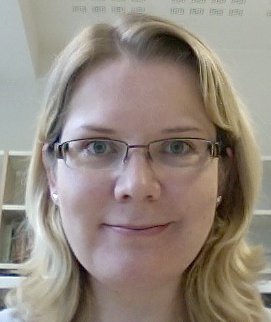 |
Mietta Lennes Department of Modern Languages, University of Helsinki, Finland http://www.helsinki.fi/~lennes |
| Mietta Lennes has more than ten years of experience in phonetic research, and phonetic methodology is one of her specialties. She has worked in several research projects where she has been responsible for the collection, annotation and analysis of large speech corpora. She has also taught in a number of Finnish and international courses in phonetic methods. Mietta is known for her collection of Praat scripts that are freely available on the web. | |
|
|
Sven Mattys School of Experimental Psychology, University of Bristol 12A Priory Road - Bristol BS8 1TU, UK http://psychology.psy.bris.ac.uk/people/svenmattys.htm |
| Sven Mattys is a Professor of Psychology of Language in the School of Experimental Psychology at the University of Bristol, UK. He obtained his PhD in Psychology from the State University of New York, Stony Brook, in 1997, and did post-doctoral research at the Johns Hopkins University, Baltimore, at and the House Ear Institute, Los Angeles. His research focuses on the perceptual and cognitive mechanisms underlying speech recognition by humans. | |
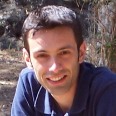 |
Vincenzo Galatà IRAT & ISTC --- CNR - National Research Council Via Martiri della Libertà, 2 - 35137 Padova, IT |
| Vincenzo Galatà is currently Research Associate at the Institute of Cognitive Sciences and Technologies (ISTC), National Research Council (CNR). His present research interests are focused on the collection and acoustic analysis of non-words speech samples of Italian infants and foreign preschool learners of Italian as L2, in order to assess their ability to produce and decode the L2 phonetic/phonological consonantal system. In 2010 he received his PhD in “Psychology of Programming and Artificial Intelligence” with a dissertation concerning the production and perception of vocal emotions in a European cross-linguistic study. | |
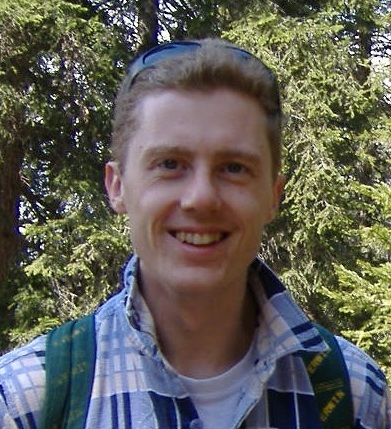 |
Michele Gubian Centre for Language and Speech Technology Radboud University Nijmegen, The Netherlands http://lands.let.ru.nl/FDA |
| Michele Gubian (Master's in Telecommunication Engineering in 2004, PhD in machine learning in 2008) has join the Marie Curie Research Training Network Sound2Sense as a post-doctoral fellow since 2008. His main task is to develop tools for data-driven phonetic research. He proposed the use of Functional Data Analysis (FDA) to tackle problems in prosody and phonetics where F0 or intensity contours have to be analysed. His contribution consists in adapting FDA to the specific needs of speech analysis as well as to make FDA accessible for scientists with limited mathematical skills and expertise. |
|
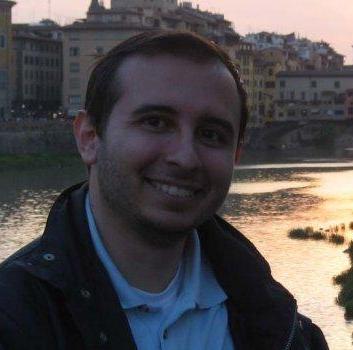 |
Antonio Origlia LUISI-Lab Dept. of Physics, University of Naples "Federico II", Italy |
| Antonio Origlia obtained his master degree in Computer Science in 2009 and he currently is a PhD student at the Dept. of Physics in the University of Naples "Federico II". His main interest is prosodic analysis aimed at the recognition of emotional traits in the human voice. Applications of this kind of information in a developmental robotics framework are also part of his interest area. He will provide support to the teachers during PRAAT and Matlab practice sessions. | |
SGPW = small group practice work
event = visit to Paestum and social dinner
| monday 26 | tuesday 27 | wednesday 28 | thursday 29 | friday 30 | |
| 8:30/9:30 | School presentation Welcome by AISV President |
mietta2 How to speed up your annotation project using Praat scripts |
paul3 How to extend your analyses using Praat scripts |
franco2 Semistructured Databases for Phonetics/Linguistics Information Management and retrieval: XML, XPath, XQuery |
sven4 More on how to use DMDX to run more complex experiments |
| 9:30/10:30 | paul1 Acoustic and auditory events as cues to articulation and linguistic structures |
sven2 DMDX introduction and how to use DMDX to run simple experiments such as lexical decision, etc. |
franco1 Relational databases: generalities, E/R diagrams, SQL, representing Textgrids and phonetic data in general into relational database |
mietta4 Exploiting the annotation (analysing your speech corpus with Praat) |
paul4 Praat's stimulus generation and listening experiments |
| 10:30/11:00 | coffee break | coffee break | coffee break | coffee break | coffee break |
| 11:00/12:00 | mietta1 Annotation and labeling |
paul2 Tricks and pitfalls in spectral, pitch, formant, intensity and harmonicity measurements |
mietta3 Descriptive systems (defining the annotation units; principles and pitfalls) |
sven3 More Experimental methods for perceptual testing (similar to Theory 1) |
franco3 Text aligned and Time aligned data, complex linguistics data management |
| 12:00/13:00 | michele1 FDA in general |
antonio Matlab and Praat |
michele2 Advances in FDA (analysing speech rate with FDA, FDA for speech resynthesis) |
vincenzo A trip with tricks: a journey into PHON and some tips on how to use it |
SGPW |
| 13:00/13:30 | discussion | discussion | discussion | discussion | lunch & departure |
| 13:30/16:00 | lunch & sea | lunch & sea | lunch & sea | lunch & sea | = |
| 16:00/17:00 | clinics1 | clinics2 | clinics3 (15:30/16:30) | clinics4 | = |
| 17:00/17:30 | coffee | coffee | event | coffee | = |
| 17:30/18:30 | sven1 Experimental methods for perceptual testing |
SGPW- sven1 Hands-on DMDX exercises |
event | SGPW - sven 2 More Hands-on DMDX exercises |
= |
| 18:30/19:30 | SGPW - michele 1 FDA software in R (includes some interfacing with Praat) |
SGPW | event | SGPW | = |
The school will take place at the Hotel L’Approdo, S. Marco di Castellabate in the Campanian area named Cilento, a few km from Paestum.
Students will stay in double or triple rooms, the use of rooms as single will be possible but charged apart (+75€). WiFi Internet will be available in the lounge and in the school areas, but not in the rooms.
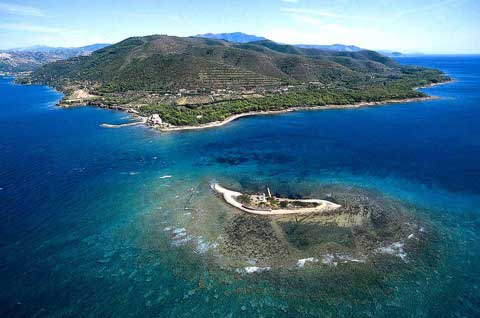
Students will arrive in Naples on Sunday the 25th. A bus transfer will pick up students at the International Airport (at 17:00) and at the Central Railway Station of Naples (at 17:30) and bring them to the school venue.
Notice that no bus will be provided for the way back at the end of the school: we will arrange car transfers from S. Marco to Agropoli, the closest train station. The train timetable can be checked here: http://www.fsitaliane.it/homepage_en.html
The trip from Agropoli to Naples Central Railway Station takes from 70 to 90 min according to the class of the chosen train. A bus goes from the Central Railway Station to the Airport, and it takes about 15 min. More detail available here: http://www.anm.it/Upload/RES/PDF/ORARI/corso%20Novara%20piazza%20Garibaldi.pdf
During the summer school, lunches and dinner will consist mainly of fish. Please inform the organizers if you have alimentary needs we should be aware of. Sunday dinner and Friday luch are included.
Electricity in Italy is 230 Volts, alternating at 50 cycles per second. If you travel to Italy with a device that does not accept 230 Volts at 50 Hertz, you will need a voltage converter.
Italy uses a type L plug (see following pictures).

The school takes place in a sea location: do not forget swimsuit and related accessories. Dressing will be informal in any occasion.
Before leaving make sure you have read and done what follows!
The local organizers are:
For further information concerning the summer school please write to
Candidates should submit their application no later than August the 30th (August the 10th).
Should more than 30 applications be submitted, candidates will be selected on the basis of their background and motivation as expressed during the application submission process.
Acceptance notification will be emailed to selected candidates no later than September the 1st (August the 20th).
Accepted candidates will have to confirm their registration by paying the required fee no later than September the 5th.
Application submission deadline: 30 August 2011 (August the 10th)
Acceptance notification: 1 September 2011 (August the 20th)
Fee payment: 5 September 2011
Summer school dates: 25-30 Septemper 2011
Participants will pay a registration fee of € 600,00 inclusive of lodging (accommodation in double or triple rooms), meals and scientific activities. The use of single rooms will be possible upon payment of an additional € 75,00.
The payment of the registration fees (€ 600,00 or € 675,00 in case of single room lodging) is possible through bank transfer to:
AISV
c/o Poste Italiane
Via Vermicelli snc (piazza) 87036 - Arcavacata di Rende (CS)
IBAN: IT 59 M 07601 16200 000003763225
BIC: BPPIITRRXXX
In the “reason for payment” field, please state your name and “AISV-Stelaris 2011 Summerschool”. Please, do not forget to send us a copy of the transaction.
For problems please contact the organizers at the following address:
The list of admitted participants to the Summerschool is now online here.
See you in Lecce!